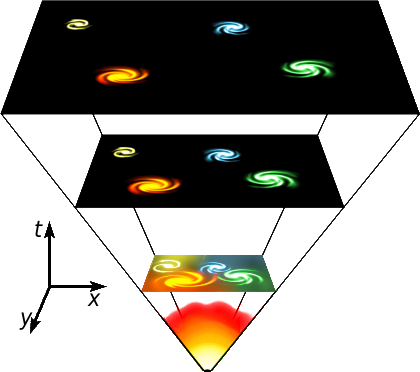
Yesterday, we noted “Harvard astronomer: But maybe planets and life got started shortly after the Big Bang?”. Nature presents it as an argument against a multiverse, and offers,
In the 1980s, Nobel laureate and physicist Steven Weinberg used an anthropic argument to calculate a maximum value for a measure of the intrinsic energy of the vacuum in space that, in theory, would push space outwards. Weinberg pointed out that unless this value is tiny, it would have torn matter apart before the Sun, Earth or humans could have come into existence. His prediction seemed to be confirmed in the late 1990s, when astronomers discovered dark energy, which seems to act like a vacuum force that accelerates the expansion of the Universe — but by only a small amount. According to particle physicists’ calculations, dark energy should actually be some 120 orders of magnitude stronger than Weinberg’s maximum value. Multiverse proponents take this as evidence that multiple universes exist that have higher values of vacuum energy.
But during Loeb’s proposed habitable epoch, matter was so dense that even if the vacuum energy had been a million times stronger, it would not have prevented the formation of stars and rocky planets, and the emergence of life. Thus, Loeb says, advocates of the anthropic principle cannot claim that the small value observed now is the only one that could be observed by living beings.
Interestingly, the fact that almost no one thinks Loeb’s thesis is likely didn’t keep it out of the science media.